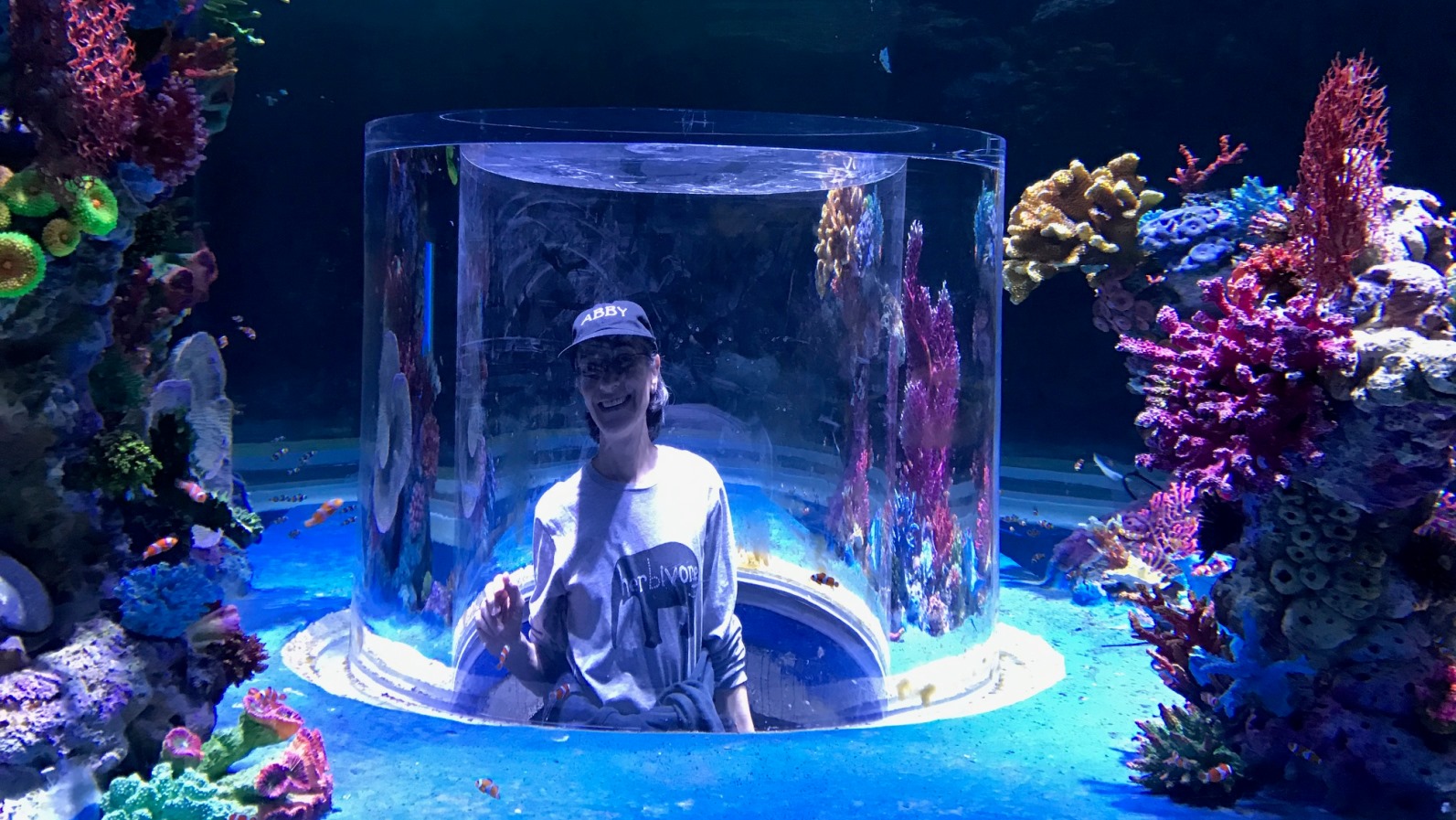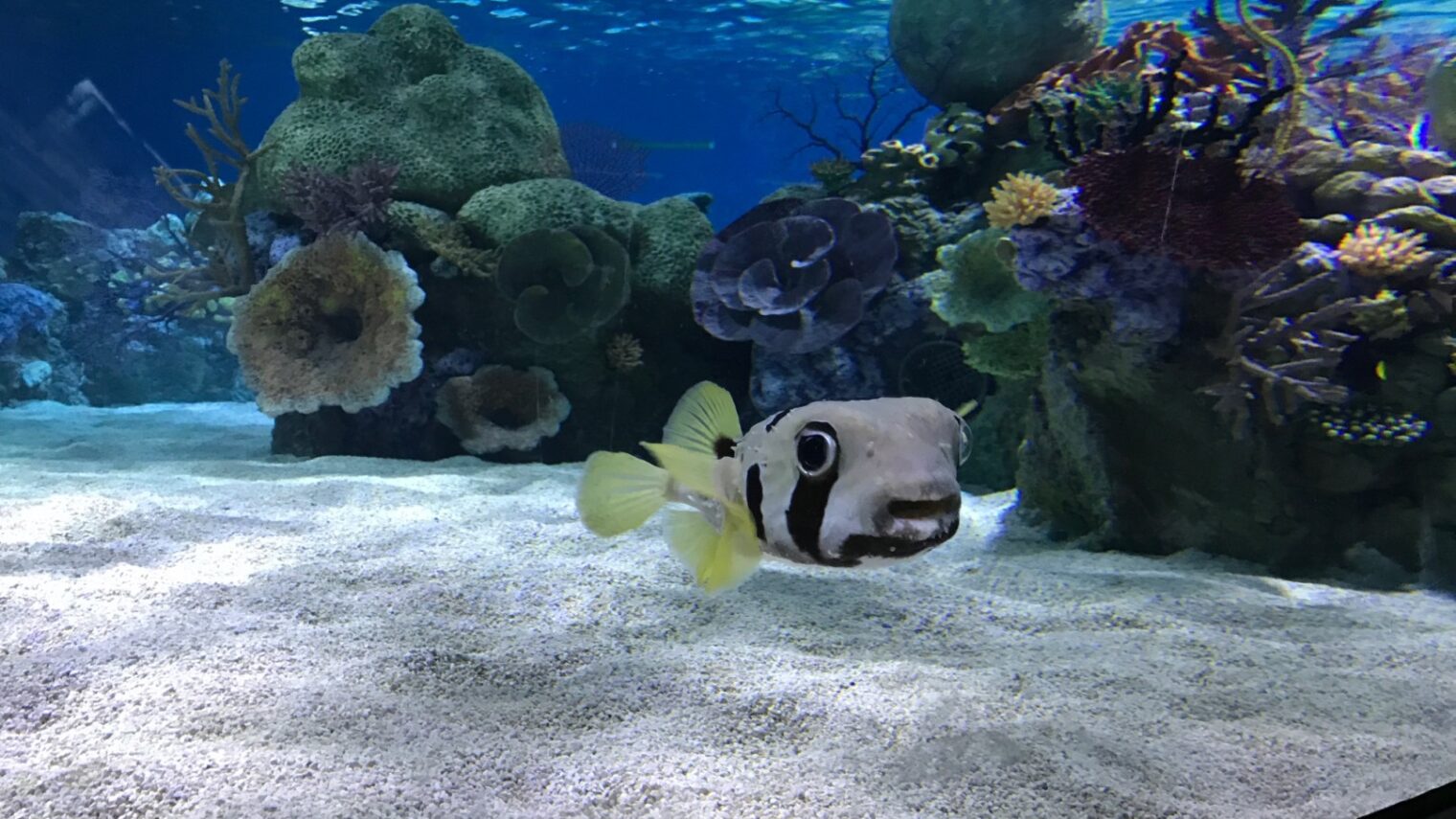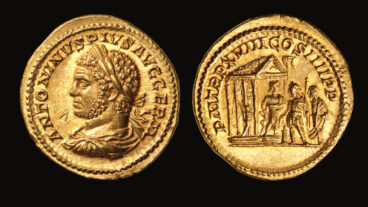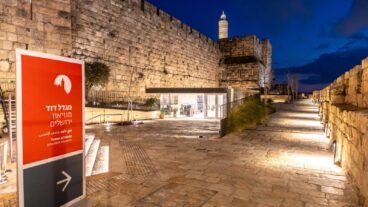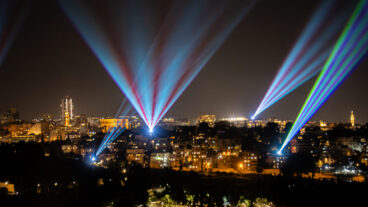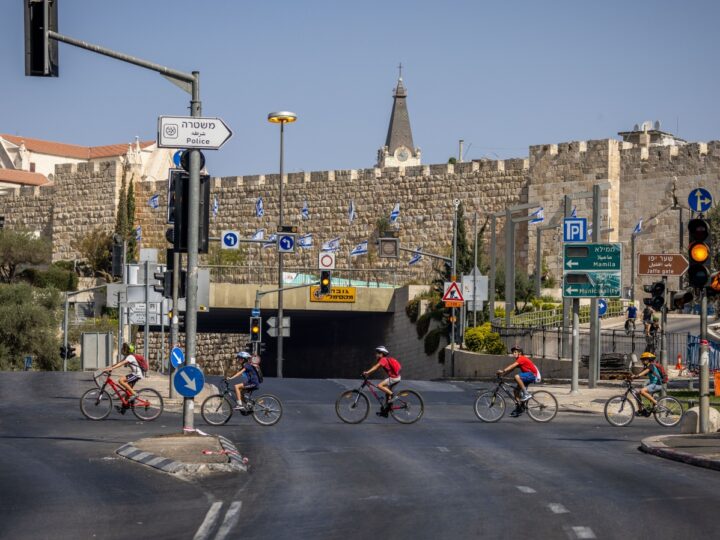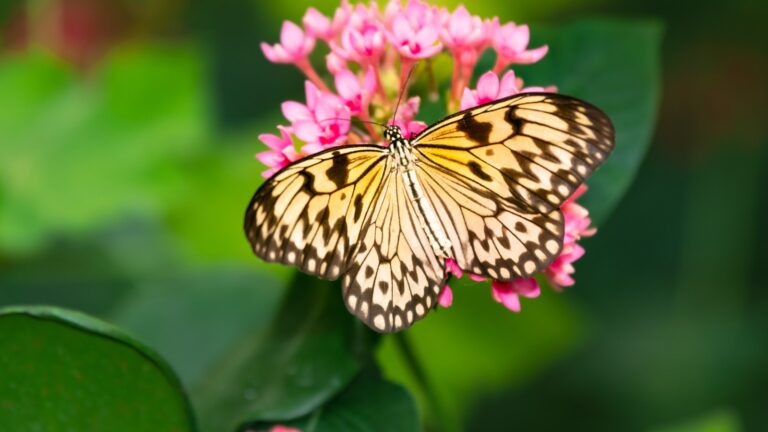I don’t know how fish feel about being ogled through glass. But I could swear I detected a welcoming vibe from a pufferfish I met recently in the Gottesman Family Israel Aquarium, due to open to the public in late 2017.
Puffer appears to have found a happy home in the $25 million, 6,500-square-meter facility on five acres neighboring the Tisch Family Zoological Gardens (Jerusalem Biblical Zoo).
She’s being joined by many other creatures indigenous to Israel’s Red and Mediterranean seas.
Until now, the only place to see marine life in Israel was the Red Sea underwater observatory at Coral World in Eilat.
The deep-blue walls of the national aquarium will encompass aquatic animals from sharks to seahorses, but no mammals. Signage in Hebrew, Arabic and English will explain what makes each species special and how to help save them from manmade threats.
“In 2010, the Ministry of Environmental Protection released a national biodiversity plan and the top conservation issue highlighted was aquatic habitats,” says Nicole Wexler, the zoo’s development director.
“In the plan, ecologists recommended that a national aquarium be established to raise awareness and educate people. We had this expansion land available near the zoo and we were looking for an appropriate project.”
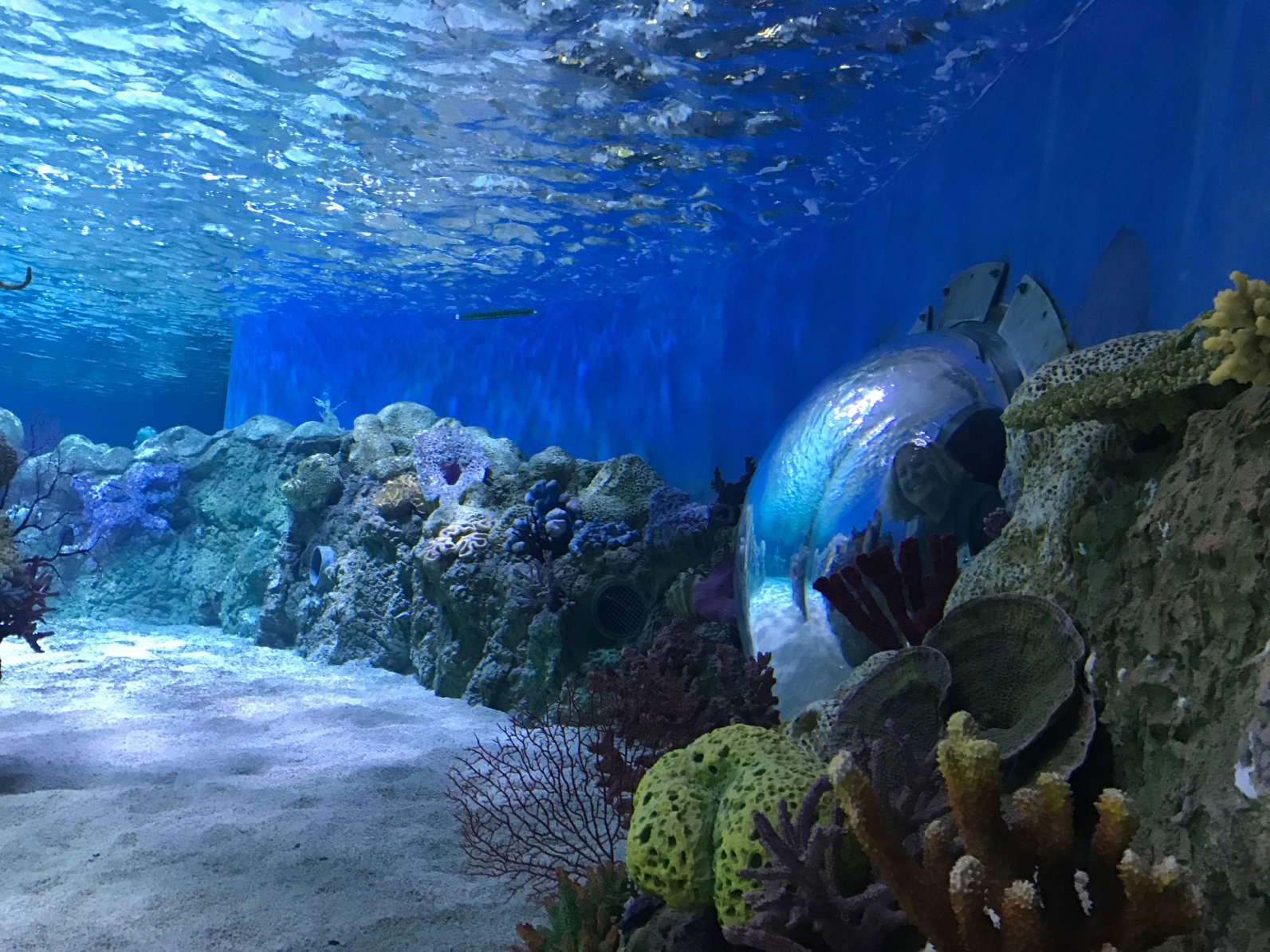
Putting an aquarium in landlocked Jerusalem isn’t a problem. Wexler explains during ISRAEL21c’s tour that like most modern aquariums, this one has pumped-in freshwater with added salt.
Ruth L. and David S. Gottesman and family of New York gave the project its water wings. Additional support comes from private and foundation donors, the Jerusalem municipality and the Ministry of Tourism.
Four seas
Designed by Raviv-Tal Environmental Architecture of Haifa, the Gottesman Aquarium can be reached from the zoo via a wooden footbridge and the zoo train, or directly by car or bus. Separate and combined zoo-aquarium tickets will be available.
The main entrance is reached by crossing a bridge over a koi pond (you’ll be able to buy food to feed them).

Past the reception desk is a dramatic display of hundreds of schooling mackerel, leading into the Four Seas of Israel Gallery with St. Peter’s fish (tilapia) representing the freshwater Sea of Galilee (Lake Kinneret), lionfish representing Red Sea marine life, a sunken-temple theme to introduce the Mediterranean, and a dry salt-crystal exhibit of the Dead Sea.
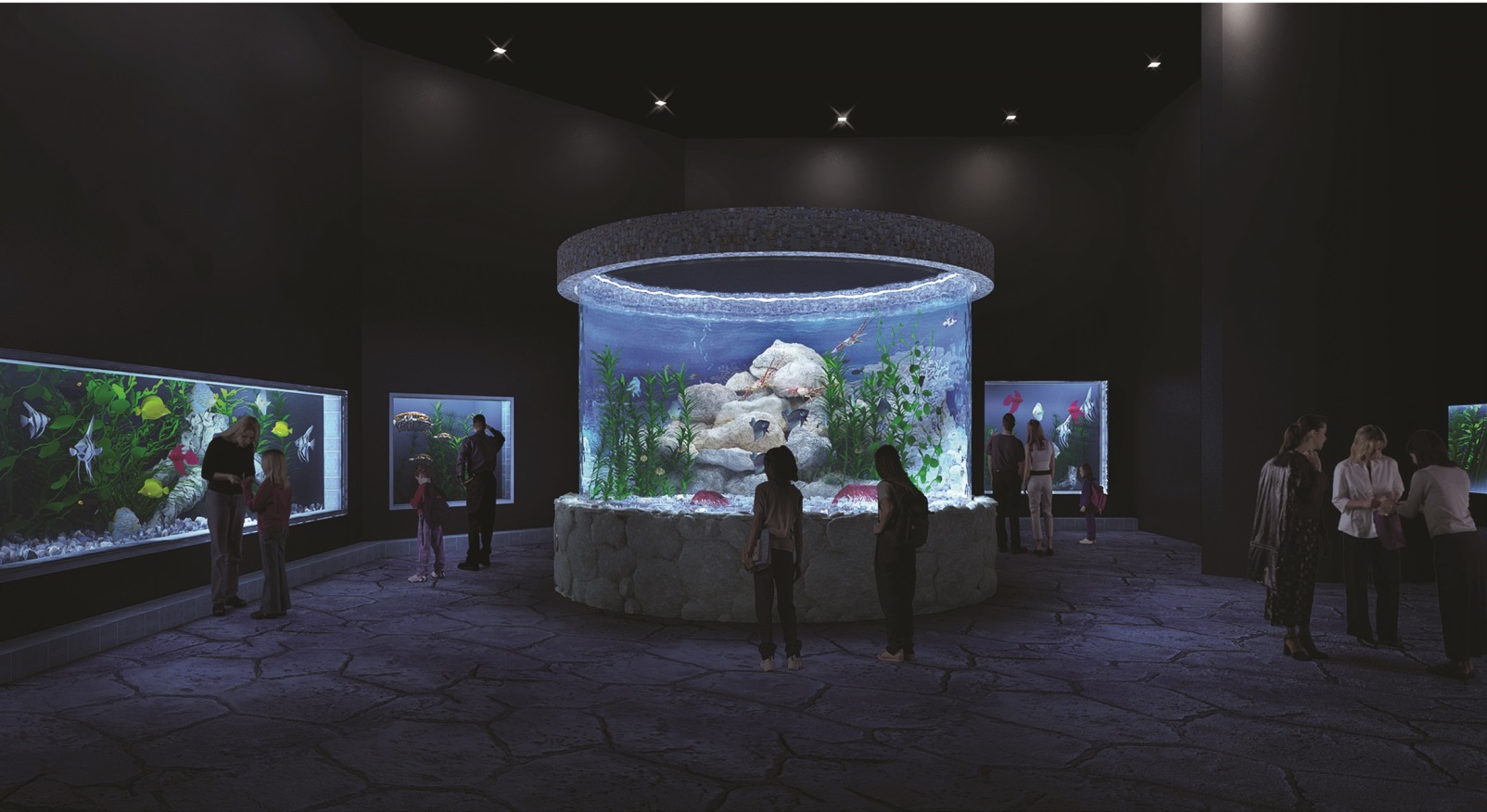
From there you’ll further explore the Med and the Red in galleries with friendly features such as a walk-through underwater viewing tunnel.
The largest tank will accommodate dive shows amid sharks, tuna, rays and sea turtles typical of the deep Mediterranean. This awe-inspiring display is positioned opposite auditorium seating that folds away to make room for private events (a warming kitchen is available for caterers).
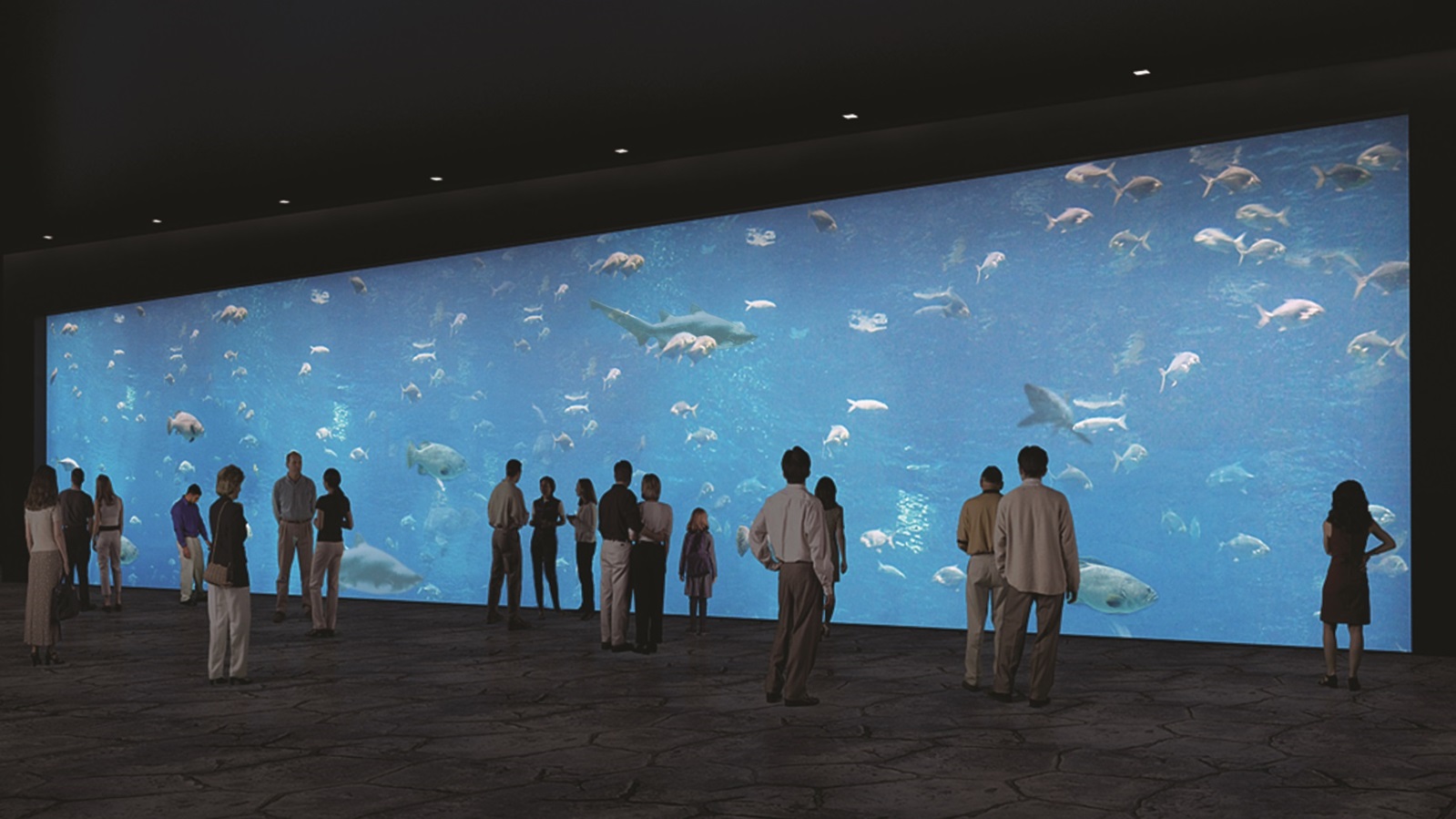
A film in the Suez Canal Gallery will educate visitors about the canal’s environmental impact. The Jellyfish Gallery will provide a real-life look at how easy – and dangerous – it is for sea turtles to mistake a plastic bag for their favorite snack.
Behind the scenes
Behind-the-scenes windows will allow a peek into areas such as the breeding facility and the filtration and water-recycling systems handling close to half a million gallons in the exhibition tanks.
On that green note, the aquarium’s electricity will be generated in large part by solar panels. The vegetation-covered roof will absorb rainwater, provide insulation and a habitat for wildlife, and help lower the air temperature. Situated on the scenic south-facing mountainside, the building has energy-saving climate-control and lighting.
“The focus throughout the facility is on conservation,” says Wexler. “By reaching out to our visitors, we try to influence people’s behavior and values toward the natural world. We also use our expertise to engage in research and breeding programs, thus working towards the conservation of aquatic animals. We already conduct breeding and conservation work for various critically endangered freshwater species at the Biblical Zoo’s Wet Side Story exhibit, including local species like the Galilee blind shrimp and the Yarkon bleak.”
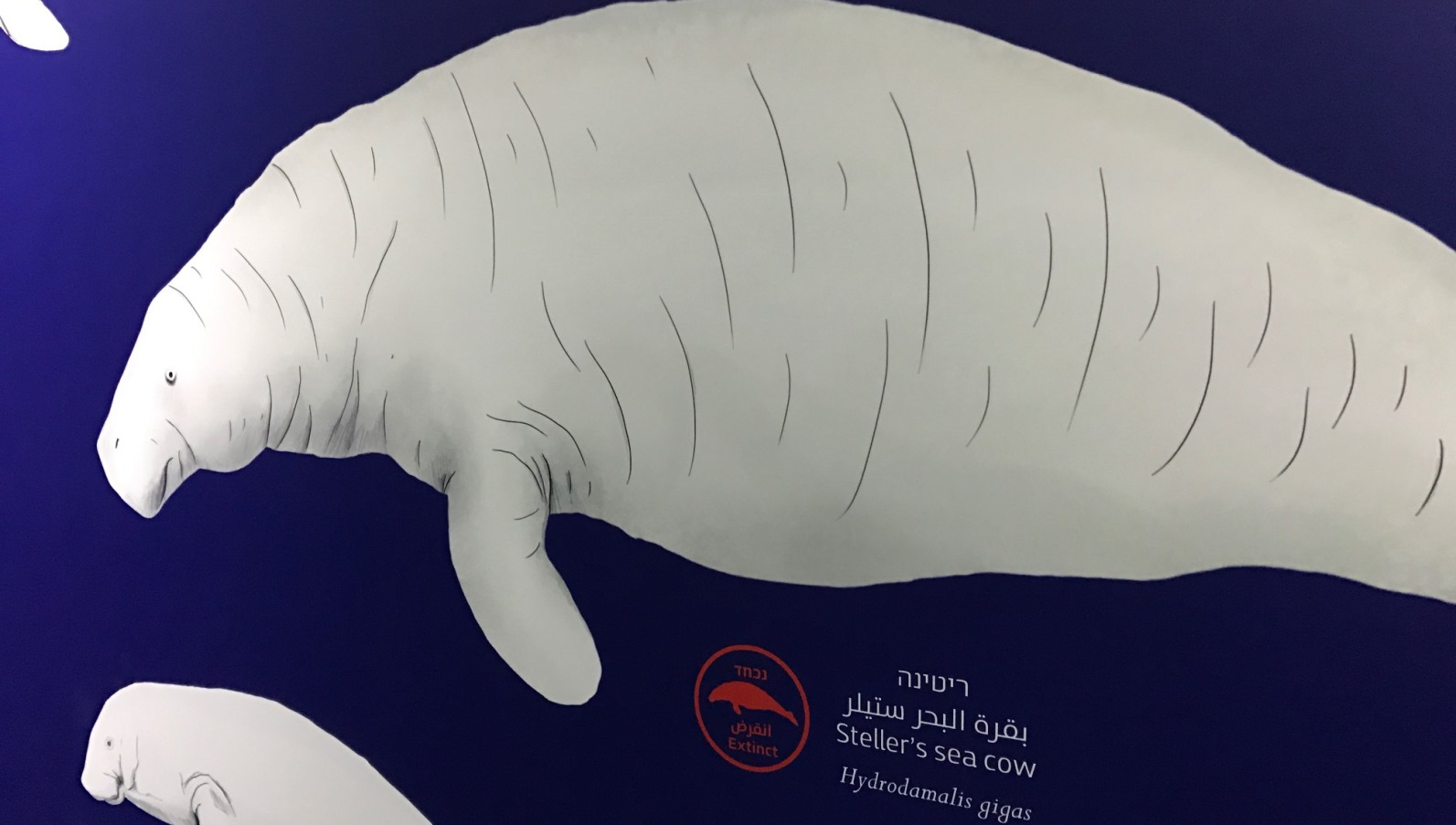
An education center funded by Dan Hotels includes an auditorium and classroom outfitted with small fish tanks for guided activities.
The final gallery, Guardians of the Sea, has a wall full of suggestions for actions benefiting the aquatic environments of Israel. Visitors who enter their conservation commitment and email address on computers (programmed gratis by students at Azrieli College of Engineering in Jerusalem) will have their picture taken automatically and displayed on the big screen.
A gift shop and restaurant round out the new aquarium, which is hoped to provide an all-weather complement and alternative to the zoo, one of Israel’s most popular paid tourist attractions.
After a June 19 formal opening ceremony, group bookings soon will be accepted on a limited basis leading up to the general opening toward the end of 2017.
See you then, Ms. Pufferfish!
